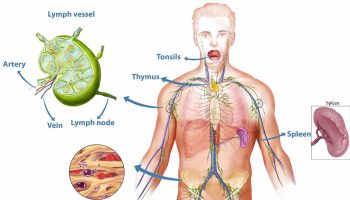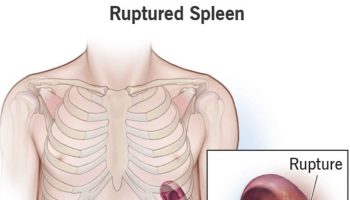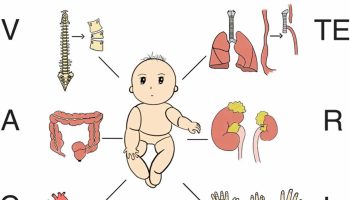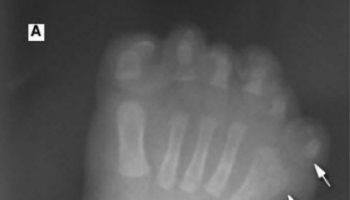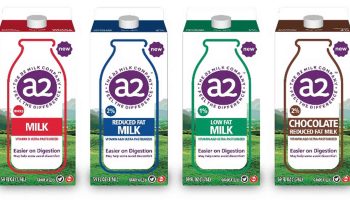Contents
What is dry mouth
Dry mouth also known as xerostomia is the feeling that there is not enough saliva in your mouth. Everyone has a dry mouth once in a while – if they are nervous, upset or under stress. But if you have a dry mouth all or most of the time, it can be uncomfortable and can lead to serious health problems. Saliva, the mouth’s natural defense mechanism, plays an important role in preventing tooth decay by rinsing away food particles, neutralizing harmful acids, digesting food, and keeping oral tissues healthy. A dry mouth can increase your risk of cavities and mouth infection. If you smoke, chew tobacco, or drink alcohol, the dryness can be worse.
Symptoms of dry mouth include:
- A sticky, dry feeling in the mouth
- Trouble chewing, swallowing, tasting, or speaking
- A burning feeling in the mouth
- A dry feeling in the throat
- Cracked lips
- A dry, rough tongue
- Mouth sores
- An infection in the mouth
People with dry mouth may experience extensive dental decay; infections of the tissues of the mouth; difficulty in speaking, eating and swallowing; mouth sores; an altered sense of taste; and difficulty wearing dentures.
Dry mouth is not a normal part of aging. Causes of dry mouth include some medicines, radiation therapy, chemotherapy, and nerve damage. Salivary gland diseases, Sjogren’s syndrome, HIV/AIDS, and diabetes can also cause dry mouth. There are more than 400 prescriptions and over the counter drugs that are known to cause dry mouth. Radiation therapy to the head and neck areas, some types of chemo, and certain other medicines can cause dry mouth or thick saliva. The glands that make saliva can become irritated and make less saliva, or your saliva can become very thick and sticky. Dryness can be mild or severe.
Dry mouth treatment depends on what’s causing it. Things you can do include drink plenty of water throughout the day, avoiding drinks with caffeine, alcohol and tobacco. You can chew sugarless gum or suck on sugarless hard candy and eat moist foods as much as possible. Also brush your teeth and rinse your mouth often with a baking soda, salt, and water solution to help keep it clean and prevent infection.
Figure 1. Salivary glands
What is Sjögren’s syndrome?
Sjögren’s syndrome is an autoimmune disease in which a person’s white blood cells attack their own moisture-producing glands. Approximately 4 million Americans have this condition. The majority of sufferers are women who are in their late 40s at the time of diagnosis.
Sjögren’s syndrome is difficult to diagnose because symptoms vary greatly. Patients may experience dryness in the eyes and mouth, fatigue, or joint pain, and it also mimics the natural signs of aging.
Can dry mouth cause health problems?
Yes. You want to prevent dry mouth if possible, because it can cause difficulty in tasting, chewing, or swallowing. It also allows plaque to build up on your teeth faster, leading to a higher risk of cavities. In certain cases, a lack of moisture can make your tongue become very sensitive, causing a condition called burning mouth syndrome. Dry mouth can also lead to bad breath, ulceration or soreness of the mouth, gum disease, and difficulty in wearing dentures.
Home remedies for dry mouth
Home remedies to relieve dry mouth temporarily may include sucking on ice chips, sucking on sugar-free hard candy or chewing gum, and rinsing with a mixture of baking soda and water. But for the best long-term dry mouth remedy, you need to address its cause.
To ease dry mouth pain:
- Sip water regularly.
- Brush and floss twice a day
- Keep your mouth clean. Rinse your mouth before and after meals with plain water or a mild mouth rinse
- Try making the mouth rinsing solution with 1 quart water, 1 teaspoon salt, and 1 teaspoon baking soda – shake well before using.
- Use a soft-bristle toothbrush. It’s a good idea to gently brush your tongue, too.
- Chew sugar-free gum or suck on sugar-free hard candies to stimulate the flow of saliva. Citrus, cinnamon, and mint flavors often work well. For some people, xylitol, which is often found in sugar-free gum or sugar-free candies, may cause diarrhea or cramps if consumed in large amounts.
- Avoid alcohol and don’t use mouthwashes that contain alcohol because they can be drying.
- Limit caffeine intake, from coffee, tea, energy drinks, and caffeinated soft drinks because caffeine can make your mouth drier.
- Avoid smoking and tobacco. Stop all tobacco use if you smoke or chew tobacco.
- Avoid commercial mouthwashes, alcoholic and acidic drinks
- Avoid overly salty foods
- Drink 8 to 10 cups of liquid a day, and take a water bottle wherever you go. Drinking lots of fluids helps thin mucus.
- Avoid acidic juices (i.e., tomato, orange, grapefruit)
- Avoid dry foods, such as toast or crackers
- Avoid foods that stick to the roof of the mouth like peanut butter or soft bread.
- Eat soft, moist foods that are cool or at room temperature. Try blenderized fruits and vegetables, soft-cooked chicken and fish, well-thinned cereals, popsicles, smoothies, and slushies.
- Moisten foods with broth, soup, sauces, gravy, yogurt, or creams.
- Use a cool mist humidifier to moisten room air, especially at night. Be sure to keep the humidifier clean to avoid spreading bacteria or mold in the air.
- Fresh pineapple or papaya may help to thin saliva, but only try this if your mouth is not sore.
- Saliva substitutes are helpful if your salivary glands have been removed by surgery or damaged by radiation therapy. These products add moisture to your mouth. Use over-the-counter moisture replacement therapies – look for products containing xylitol, such as Mouth Kote or Oasis Moisturizing Mouth Spray, or ones containing carboxymethylcellulose or hydroxyethyl cellulose, such as Biotene Oral Balance.
- Try a mouthwash designed for dry mouth — especially one that contains xylitol, such as Biotene Dry Mouth Oral Rinse or ACT Total Care Dry Mouth Mouthwash, which also offer protection against tooth decay.
- Avoid using over-the-counter antihistamines and decongestants because they can make your symptoms worse.
- Breathe through your nose, not your mouth.
- Nutritional supplements, like liquid meal replacements, may be helpful. If you can’t get enough calories and nutrition through solid foods, you may need to use liquid supplements for some time. Talk to your cancer care team about this.
- Visit the dentist regularly
- Acupuncture, which some research suggests can help with dry mouth.
Table 1. What to eat or not eat when you have a dry mouth
| Eat | Foods that may cause problems | |
| High protein | Meats, poultry, and fish in sauces and gravies Casseroles, soups, and stews | Dry meats, poultry, and fish without sauces |
| Breads, cereals, rice, and pasta | Bread, rolls Cooked and cold cereals, cereal with milk Rice soaked in gravy, sauce, broth, or milk | Dry breads, rolls Pasta, rice Pretzels, chips Dry cereal |
| Fruits and vegetables | Canned and fresh fruits that have a lot of moisture, like oranges and peaches Vegetables in sauce | Bananas, dried fruit Vegetables, unless in a sauce or with a high moisture content |
| Drinks, desserts, and other foods | Club soda, hot tea with lemon (decaf), fruit-ades, diluted juices, sports drinks Commercial liquid nutrition supplements Homemade milk shakes; ice cream, sherbet, pudding Butter, margarine Salad dressing Sour cream, half-and-half | Cookies, cake, pie, unless soaked in milk |
Saliva is important to maintain the health of your teeth and mouth. If you frequently have a dry mouth, taking these steps to protect your oral health may also help your condition:
- Avoid sugary or acidic foods and drinks because they increase your risk of tooth decay.
- Brush with a fluoride toothpaste — ask your dentist if you might benefit from prescription fluoride toothpaste.
- Use a fluoride rinse or brush-on fluoride gel before bedtime. Occasionally a custom-fit fluoride applicator (made by your dentist) can make this more effective.
- Visit your dentist at least twice yearly to detect and treat tooth decay or other dental problems.
If these steps don’t improve your dry mouth, talk to your doctor or dentist. The cause could be a medication or another condition. Medications are one of the most common causes of dry mouth. Long-term relief from your dry mouth may mean stopping or changing your medication or its dosage, or addressing underlying health issues.
See a doctor if:
- your mouth is still dry after trying home remedies or pharmacy treatments for a few weeks
- you have difficulty chewing, swallowing or talking
- your mouth is painful, red or swollen
- you have sore white patches in your mouth
- you think a prescribed medicine might be causing your dry mouth
- you have other symptoms, like needing to pee a lot or dry eyes
Your doctor can check what the cause might be and recommend treatment for it.
What causes dry mouth
Dry mouth is caused when the salivary glands in the mouth don’t make enough saliva to keep your mouth wet. These salivary glands may not work properly as the result of:
- Dehydration – for example, from not drinking enough, sweating a lot or being ill
- Medicines – check the leaflet or search for your medicine online to see if dry mouth is a side effect. Over 400 hundred medications, including many over-the-counter drugs, produce dry mouth as a side effect. Among the more likely types to cause problems are some of the drugs used to treat depression, high blood pressure and anxiety, as well as some antihistamines, decongestants, muscle relaxants and pain medications. The most common troublemakers are antihypertensives, antidepressants, painkillers, tranquilizers, diuretics, and antihistamines.
- Breathing through your mouth at night – this can happen if you have a blocked nose or you sleep with your mouth open
- Anxiety for example, when nervous or stressed
- Cancer treatment (radiotherapy or chemotherapy).
- Chemotherapy drugs can change the nature of saliva and the amount produced. This may be temporary, with normal salivary flow returning after treatment is completed. Chemotherapy causes dry mouth by making saliva thicker. But this is usually a temporary symptom that clears up about 2 to 8 weeks after treatment ends.
- Radiation treatments to your head and neck can damage salivary glands, causing a marked decrease in saliva production. This may be temporary or permanent, depending on the radiation dose and area treated. It can take 6 months or longer for the salivary glands to start producing saliva again after radiation therapy ends. Some people notice dry mouth improving during the first year after radiation treatment. But many people continue experiencing some level of long-term dry mouth. This is especially likely if radiation therapy was directed at the salivary glands.
- Aging. Many older people experience dry mouth as they age. Contributing factors include the use of certain medications, changes in the body’s ability to process medication, inadequate nutrition, and having long-term health problems. However, dry mouth is not a normal part of aging. If you think you have dry mouth, see your dentist or doctor to find out why your mouth is dry.
- Nerve damage. An injury or surgery that causes nerve damage to your head and neck area can result in dry mouth.
- Other health conditions. Dry mouth can be due to certain health conditions, such as diabetes, stroke, yeast infection (thrush) in your mouth or Alzheimer’s disease, or due to autoimmune diseases, such as Sjogren’s syndrome or HIV/AIDS. Snoring and breathing with your mouth open also can contribute to dry mouth.
- Tobacco and alcohol use. Drinking alcohol and smoking or chewing tobacco can increase dry mouth symptoms.
- Recreational drug use. Methamphetamine use can cause severe dry mouth and damage to teeth, a condition also known as “meth mouth.” Marijuana also can cause dry mouth.
- Graft-versus-host disease, in which cells transplanted from a donor recognize the patient’s body as foreign and attack it.
Sometimes a dry mouth that doesn’t go away may be caused by a condition like diabetes.
Patients with Alzheimer’s disease or those who suffer a stroke may experience dry mouth. Approximately 30 percent of persons over the age of 65 are affected by dry mouth.
Dry mouth symptoms
If you’re not producing enough saliva, you may notice these signs and symptoms all or most of the time:
- Dryness or a feeling of stickiness in your mouth
- Thick, stringy saliva
- Pain or a burning sensation in the mouth or on the tongue
- Cracks in the lips or at the corners of the mouth
- A dry or grooved tongue
- Difficulty chewing, tasting, or swallowing
- Difficulty talking
- Bad breath
- Dry or sore throat and hoarseness
- A changed sense of taste
- Problems wearing dentures
Dry mouth also often causes dental problems. Saliva helps maintain a healthy balance of bacteria in the mouth. Without enough saliva, the bacteria and other organisms in the mouth grow too quickly. This can cause sores and mouth infections, including thrush. Thrush is caused by an overgrowth of yeast.
Saliva also washes away food particles and acids left in the mouth after eating. This means that a lack of saliva can cause gum disease and cavities, also called tooth decay. Dry mouth may also make it difficult to wear dentures. In addition, dry mouth may result in lipstick sticking to your teeth.
Dry mouth complications
If you don’t have enough saliva and develop dry mouth, this can lead to:
- Increased plaque, tooth decay and gum disease
- Mouth sores
- Yeast infection in your mouth (thrush)
- Sores or split skin at the corners of your mouth, or cracked lips
- Poor nutrition from having problems with chewing and swallowing
Dry mouth diagnosis
To determine the cause of your dry mouth, your doctor likely will review your medical history and all medications you’re taking, including over-the-counter medications, and examine your mouth.
Sometimes you may need blood tests, imaging scans of your salivary glands or tests that measure how much saliva you produce to identify the cause of your dry mouth. If your doctor suspects your dry mouth is caused by Sjogren’s syndrome, a small sample of cells (biopsy) taken from salivary glands in your lip may be sent for testing.
Dry mouth treatment
Your treatment depends on the cause of your dry mouth. Your doctor or dentist may:
- Change medications that cause dry mouth. If your doctor believes medication to be the cause, he or she may adjust your dosage or switch you to another medication that doesn’t cause a dry mouth.
- Recommend products to moisturize your mouth. These can include prescription or over-the-counter mouth rinses, artificial saliva or moisturizers to lubricate your mouth. Mouthwashes designed for dry mouth, especially ones with xylitol, can be effective, such as Biotene Dry Mouth Oral Rinse or Act Dry Mouth Mouthwash, which also offer protection against tooth decay.
- Protect your teeth. To prevent cavities, your dentist might fit you for fluoride trays, which you fill with fluoride and wear over your teeth at night. Your dentist may also recommend weekly use of a chlorhexidine rinse to control cavities.
Dry mouth medication
If you have severe dry mouth, your doctor or dentist may:
Prescribe medication that stimulates saliva. Your doctor may prescribe pilocarpine (Salagen) or cevimeline (Evoxac) to stimulate saliva production.
Dry mouth remedies
How to help ease a dry mouth yourself:
DO
- drink plenty of water – take regular sips during the day and keep some water by your bed at night
- sip water or sugar-free drinks or suck ice chips throughout the day to moisten your mouth, and drink water during meals to aid chewing and swallowing.
- chew sugar-free gum or suck on sugar-free sweets to stimulate the salivary glands. Products that contain xylitol may also help prevent cavities. However, in some people, xylitol, which is often found in sugar-free gum or sugar-free candies, may cause gas or diarrhea if consumed in large amounts.
- use lip balm if your lips are also dry
- brush your teeth twice a day and use alcohol-free mouthwash – you’re more likely to get tooth decay if you have a dry mouth
- try over-the-counter saliva substitutes that contain xylitol, such as Mouth Kote or Oasis Moisturizing Mouth Spray, or that contain carboxymethylcellulose or hydroxyethyl cellulose, such as Biotene OralBalance Moisturizing Gel.
- breathe through your nose, not your mouth. You may need to seek treatment for snoring if it causes you to breathe through your mouth during the night.
- add moisture to the air at night with a room humidifier.
Saliva is important to maintain the health of your teeth and mouth. Taking these steps to protect your teeth may also help your dry mouth condition:
- Brush with a fluoride toothpaste and floss your teeth. Ask your dentist if you might benefit from prescription fluoride toothpaste, toothpaste containing betaine, or a tooth gel to neutralize bacteria acids.
- Use a fluoride rinse or brush-on fluoride gel before bedtime.
- See your dentist at least twice yearly to have your teeth examined and plaque removed, to help prevent tooth decay.
DON’T
- drink lots of alcohol and caffeine (such as tea and coffee) or fizzy drinks. These products can cause dryness and irritation. Don’t use a mouthwash that contains alcohol.
- have foods that are acidic (like lemons), spicy, salty or sugary
- smoke. If you smoke or chew tobacco, stop, because tobacco products can dry and irritate your mouth.
- stop taking a prescribed medicine without getting medical advice first – even if you think it might be causing your symptoms. Over-the-counter antihistamines and decongestants. These can worsen your dry mouth.
- eat sugary or acidic foods and candies. These increase the risk of tooth decay. Also avoid spicy or salty food because they can cause irritation.
- Eldridge B, and Hamilton KK, Editors, Management of Nutrition Impact Symptoms in Cancer and Educational Handouts. Chicago, IL: American Dietetic Association; 2004.[↩]


